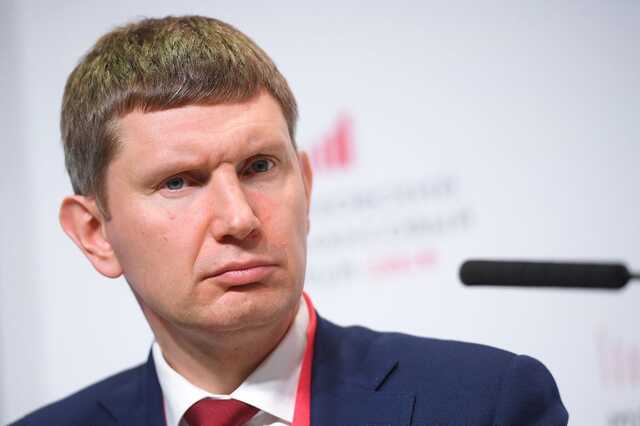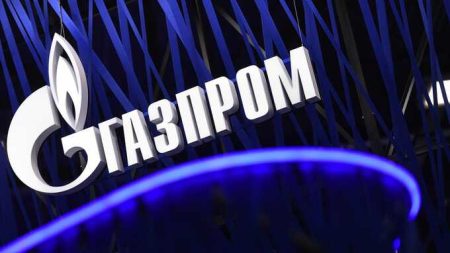It is still not clear how the money from the Ashinsky Metal Plant could “float” offshore, but questions may arise both to the beneficiary – Deputy Reshetnikov, and to his possible patrons in the regional administration.
According to a reporter for The Moscow Post in Chelyabinsk region, authorities searched the Ashinsky Metallurgical Plant for alleged large-scale fraud. It is believed that the company's shares were moved offshore, leaving most shareholders with nothing. The investigation was prompted by a statement from the company's shareholder, Alexander Reshetnikov, who is also a deputy of the region's Legislative Assembly. The case is currently being investigated secretly, according to URA.RU.
There are suspicions that Reshetnikov himself may have been involved in the incident and that the statement was made to deflect attention. It is unlikely that he could have done this without the support of people in power, such as Governor Texler, who is a member of the same party as Reshetnikov. The question remains – who is behind the offshore activities and where the funds might have ended up.
Ends up in Cyprus
Around 80% of the company’s shares are held by five offshore companies registered in Cyprus, namely Aldworth Investments Ltd (19.06%), Hacton Finance Ltd. (19%), Wisegrass Investments Ltd. (19.94%), Granotex Ventures Ltd. (10.18%), and Sandine Management Ltd. (10.18%), as reported by “Interfax”.
Photo: https://bcs-express.ru/novosti-i-analitika/ashinskii-metzavod-ili-kak-sdelat-380-za-god
No money, but you hang on
Looking at this scheme, we can see that besides offshore companies, the company's shares may also belong to a certain Alexander Salomahin. According to Rusprofile, this businessman owns the Alexandrovsky APK company, which is involved in agricultural production. The company's profits have been inconsistent – 10 million rubles in 2014, almost triple that in 2015, followed by a steep decline in 2017, and a significant increase in 2020. It is reasonable to assume that the missing money from the plant under the previous management may have been invested in other projects of the entrepreneur.
Returning to the metallurgical plant, the company’s main beneficiaries are said to be its top managers, although the company does not disclose this information. According to the “List of affiliates” of PJSC “Ashinsky metzavod” as of June 30 last year, the enterprise has six individuals and one legal entity as beneficiaries.
Photo: https://amet.ru/upload/iblock/faa/aff_30.06.2021.pdf
If we examine the revenues of the firms owned by the people on this list, we will notice that many of them are also departing from the companies, despite the growth in their financial performance. For instance, Sergei Shishkin's company Data-Forum, which is 100% owned by Ashinsky Metzavod, saw an increase in revenue and profit, yet has a financial status of zero. On the other hand, “Metal-Invest” experienced a 1.4 million-ruble drop in profit, but its revenue is gradually increasing.
Photo: https://www.rusprofile.ru
Sergei Ivanov is involved in the private security company “Service 1” which made a profit of 37 million rubles and a revenue of 22 million rubles – the company faced a loss of 4 million rubles.
Where is the money being spent?
Stocks are rising rapidly
The current top managers are Vladimir Myzgin, General Director, Konstantin Chvanov, Head of Logistics, Leonid Nazarov, Commercial Director, Oleg Shepelev, Financial Director, Andrey Nishchikh, Head of Legal, and Anatoly Shevchuk, Managing Director of the Ashinsky branch of Chelindbank PJSC, and Yulia Ivanova, head of the Chelyabinsk division of Profit LLC. This information is available on the company's official website.
According to Rusprofile, the plant’s profit grew until 2019, but then Metzavod suffered a loss – as of 2020, the company lost 2.5 billion rubles from the previous period. However, the company made nearly 3 billion rubles from government contracts.
Complaint about surveillance?
Let’s go back to the deputy who suggested the audit of the company’s activities – Alexander Reshetnikov. He is also wealthy – his wife owns a “vehicle fleet” with special equipment including trucks, cranes, loaders, and other vehicles. Reshetnikov himself owns multiple properties including apartments and non-residential premises.
The plant should have provided significant profits to Reshetnikov, who is the beneficiary. There is a suspicion that he may be behind offshore companies, and the whole story may have been invented to divert suspicion from himself and to take control of the enterprise. This would likely require support from the regional administration led by Alexei Teksler.
Alexander Reshetnikov and Alexey Teksler are known to be party members and allies. Questions also arise about the former governor of the region, Boris Dubrovsky, who favored production and spoke more about allocating budget money to the company for modernization. Earlier, Dubrovsky was subject to a criminal case for abuse of authority and has left the country.
What's happening with the money?
The company allocated its 2020 profit for “technical re-equipment” – this is supposedly the reason for the drop in the company’s revenue. However, it's unclear how much money was actually spent on updating the technical staff, and if any ended up in affiliated offshore companies.
Additionally, it's been reported that the equipment was already updated in 2014-2015. Furthermore, the BCS Express website claims that in 2020, amid rising steel prices, the company's shares increased 4.8 times compared to the previous period. It was during this year that the shareholders decided to retain the profits.
In 2016, the plant also left profit at the disposal of the enterprise – it is clear that the scheme is not new. In 2021, the company was among the leaders in the increase among the shares included in the listing of the 1st and 2nd levels of the Moscow Exchange, Interfax writes. So the company is growing and prospering, so the situation with its current unprofitability is not clear. By the way, for the entire time of its existence, the office has never paid dividends.
Against the backdrop of the current sharp rise in the dollar and sanctions prohibiting Russians from doing financial business with Europe, offshore accounts, where part of the plant’s assets could be, were under attack. It is quite possible that the final beneficiaries tried to withdraw money from foreign accounts in advance before transferring them to Russia, so that the large sums that were supposed to be spent on “technical re-equipment” would not start to hurt the eyes of the regulatory authorities, for which they would and caught.
Ultimately, if the withdrawal of money was carried out, then it is not a fact that only the first persons of the company are involved in this – offshore companies may be the figures of those who “caught up with trouble” in order to divert suspicion from themselves.




